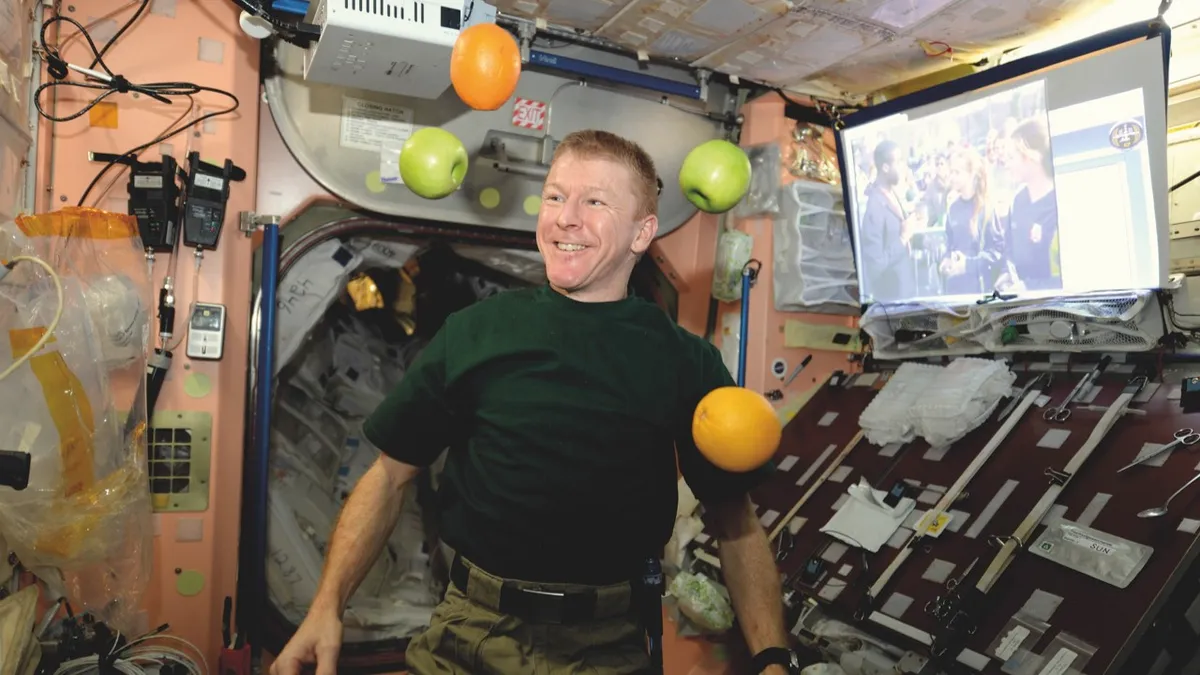Astronaut Tim Peake became a national hero on 15 December 2015 when he headed off into space for a six-month visit to theInternational Space Station(ISS). For years, the UK government had been staunchly against contributing money, and therefore astronauts, toESA.
Peake’s six months aboard the ISS were an unqualified success in every sense. He performed extraordinary science and inspired millions of people, young and old, through his tweets, photos and videos. Now that he’s back on Earth, spreading the message that human spaceflight is a good thing for the UK is top of his priorities.
Here's an excerpt from out interview withTim Peakein the Christmas 2016 issue ofBBC Focusmagazine:
What was one of the first things you noticed on returning to Earth?
The smells! I’d experienced this before, when I lived in a cave for seven days as part of ESA’s astronaut training. Training in a cave helps you deal with isolation and working in a small group.
I remember coming out of the cave and thinking that it was like someone had turned on full contrast on the television: colours were so bright and smells were so intense. Your senses had been deprived for so long and then suddenly they were hit by this massive overload.
Coming out of the capsule after landing was a bit similar but the first smells that hit you are fairly unpleasant. The capsule has been burning up at 2,000°C, all of the absorbing and ablating material is now crispy, the plasma has scorched all the windows, and quite often the grass gets set on fire. So the first smells are this burning, scorched odour. Once we got carried out in the chairs, then we could smell this really Earth-y smell, and the grass. Sitting on the Kazakhstan Steppes… it was powerful.
Why do you think human spaceflight is so important?
Exploration drives innovation. I think in our nature we are genetically designed to explore: to push our boundaries and reach out. Exploration is at the heart of that driving passion for many people. And you also challenge industries to be more innovative, to come up with better, lighter, stronger materials, and faster propulsion techniques.
Exploration is a great driving force for growth and innovation, and you have to have humans in the loop to do that to make it exciting and to use our ingenuity. Computers, robotics, and artificial intelligence are growing exponentially. It is exciting, but we are still many years away from having a computer or an artificial intelligence system that has the same kind of ingenuity and the thought processes of a human brain, and that has the emotional capacity of the human brain.

Which was more adrenaline-filled: launch or landing?
That’s a tough question. I enjoyed the launch much more than I thought I would. The feeling of acceleration was much more addictive. It is just foot-to-the-floor power, and acceleration up to 25 times the speed of sound. Yeah, that was probably the more exciting. The schoolboy in me came out smiling most of the way through that.
The re-entry and landing were much more dynamic. A lot more can go wrong during the landing. We have to be very engaged. Clearly things can go wrong in the launch, but if they do then they tend to go catastrophically wrong and the automatic systems to protect the crew will either work or not work.
On landing, we have an engine burn to do, and many things can go wrong with that. So then there are all the subsequent procedures that we would have to do if the landing were to go wrong. That was all exciting, very dynamic and fun, but for pure exhilaration and excitement, launch was the one.
Read the full interview with Tim Peake in the Discoveries section of theChristmas 2016BBC Focusmagazine, where we find out his scariest moments aboard the ISS, how spaceflight has changed him and where he is going next.
Follow Science Focus onTwitter,Facebook, Instagramand Flipboard
